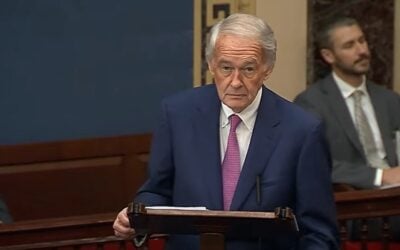The UK government and regulator Ofgem have today jointly launched the long-awaited call for evidence on the future of the country's energy system, seeking views on the development of a smarter, more flexible and user-friendly network.
The document from the regulator and the Department for Business, Energy and Industrial Strategy (BEIS) addresses a range of issues related to the evolving power system.
Enjoy 12 months of exclusive analysis
- Regular insight and analysis of the industry’s biggest developments
- In-depth interviews with the industry’s leading figures
- Annual digital subscription to the PV Tech Power journal
- Discounts on Solar Media’s portfolio of events, in-person and virtual
It has a particular focus on removing barriers to storage and demand side response; improving price signals to allow more flexibility; catalysing innovation, so that new solutions can emerge and compete in the market; and assessing changes to roles and responsibilities in the energy system.
Among the areas within the document is a call to network companies to streamline the process for storage to connect to the grid. This includes ensuring it can connect in areas where it can ease network congestion and benefit other connecting customers.
It also hopes to promote closer collaboration between local grid operators and National Grid to work out the best solutions for managing a system with increasing amounts of low carbon generation.
In addition the documenmt is seeking views on what can be done to make it easier for businesses to provide voluntary demand side response, where they turn down electricity use at peak times in exchange for payments.
Greg Clark, secretary of state at BEIS, said: “I am excited to see new ideas and technologies coming forward to help keep household bills down, boost our energy security and meet our climate change commitments.
“Giving people access to a smarter energy system that is affordable, secure and puts them in control of their energy costs is an important part of our work to build an economy that works for all.”
The 104 page document will be held open until 12 January, during which time businesses and stakeholders across the UK energy sector are being called on to supply their thoughts on the coutry’s transition to a smarter energy system.
Dermot Nolan, chief executive of Ofgem, said: “Having a smarter system will revolutionise how we all interact with the energy market. A smarter system also makes it far easier for new businesses to enter the market and offer new services. To get there we must make sure the regulatory regime is fit for the energy system of tomorrow and remove any barriers.”
The industry has been waiting months for the publication of this document, which had been delayed following the Brexit referendum and ensuing changes to Whitehall. However, civil servants had trailed the content of the call for evidence heavily in the run up to its release, giving strong indications of its content ahead of today’s release.
The government’s attention in this area follows the release of the National Infrastructure Commission’s Smart Power Report in March, which identified savings of £8bn a year for industry and consumers by 2030.
BEIS has added to this with its own report, which it commissioned Imperial College and the Carbon Trust to complete, which found consumers could save between £17-40 billion by 2050 from the development of a smarter, more flexible and user-friendly energy system.
The eventual release of the document has been welcomed by the renewables industry as a sign that work can finally get underway to correct a number of existing barriers within the regulatory landscape blocking the growth of smart technologies.
Paul Barwell, chief executive of the Solar Trade Association, said: “Opening both energy markets and networks to the clean and clever technologies available today will be hugely beneficial for consumers.
“Smart power allows greater volumes of the cheapest forms of clean power – like solar – to be integrated effectively into the energy system. It also means demand will more efficiently match supply, rather than wasteful business as usual, where generation simply follows demand peaks.
“Smart power will benefit consumers with more affordable, clean and secure power - which it will be easier to own themselves. It will also encourage huge investment into UK Plc.”
One of the key new system flexibility tools identified in the Smart Energy proposals is battery storage. Earlier this year an independent report from Aurora Energy Research, commissioned by the STA, found that integrating solar into a decentralized, flexible, smarter power system, including storage, delivers a net benefit to the system of £3.70 per MWh.






